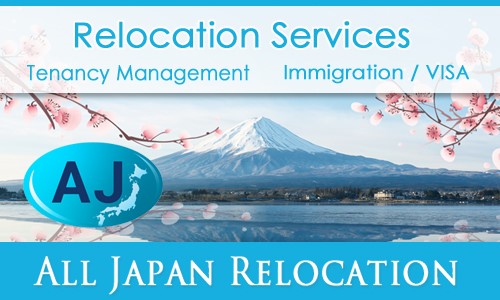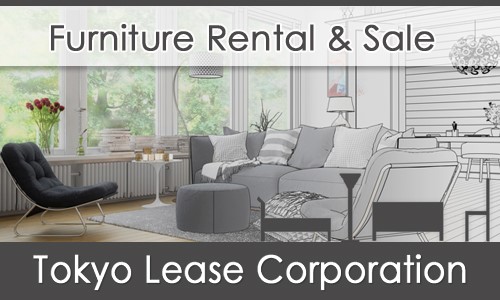Japanese Apartment Etiquette: Essential Rules for Expats

Adjusting to life in a Japanese apartment? Mastering local etiquette is key to a hassle-free experience! Understanding these essential rules will help you settle in smoothly and avoid cultural misunderstandings, as well as accidental violation of your rental agreement. Learn how to navigate apartment living in Japan like a pro with these practical tips tailored for expats.
1. Maintain Clean and Orderly Common Areas

The entrance, hallways, elevators, and areas in front of apartment doors are shared spaces (common areas). Please avoid leaving personal belongings such as bicycles or strollers and ensure these areas are kept clean. Smoking on balconies and in common areas is not allowed. Additionally, since balconies are considered common areas, barbecues are not permitted in many properties, and fireworks involving open flames are also prohibited.
2. Tenant and Occupancy Rules
In Japan, landlords require detailed information about tenants and the number of occupants before approving a rental application. The tenancy agreement is finalized only after a thorough review and approval by the landlord. If there are any changes—such as a new tenant moving in or an increase in occupants—you must notify the landlord in advance and obtain approval. Unauthorized changes may be considered a lease violation, potentially leading to penalties or contract termination. Always adhere to the agreed-upon terms to maintain a smooth rental experience.
3. Smoking Policy
Unless otherwise stated in the lease agreement, smoking indoors is permitted. However, smoking on balconies and in common areas is strictly prohibited. Please note that smoking indoors may cause nicotine stains and odors on walls and ceilings, which could result in high restoration and cleaning costs.
4. No Subleasing
Subleasing your rental unit without permission is strictly prohibited and may result in eviction or legal consequences. Always follow the contract terms.
5. Proper Waste Disposal

Each city in Japan has its own waste separation and collection rules. Improper disposal can inconvenience neighbors, so follow your local guidelines and place garbage out only on designated collection days.
>> Disposal of Oversized Garbage in Japan
>> How to Properly Dispose of Cooking Oil in Japan
>> Separation and Disposal of Garbage and Recyclables in Tokyo
6. Items That Must Not Be Flushed Down the Toilet
Only human waste and toilet paper should be flushed down the toilet. Flushing anything else can cause blockages, and if repairs are required, you may be responsible for the costs.
Flushing the following items can cause serious clogging issues. Do not flush them under any circumstances.
・Leftover food and food waste
・Diapers
・Sanitary products
・Incontinence pads
・Tissue paper, wet wipes, and paper napkins
・Cat litter or other pet toilet materials
・Any other foreign objects
If a clog occurs, please contact the property management company immediately.
7. Noise and Consideration for Neighbors

Japan values quiet living, especially during nighttime and early morning hours, and many apartments require noise reduction practice during the hours of 10 PM - 8 AM. Keep conversations, TV volume, and music at a level respectful of your neighbors. Daily activities like vacuuming and laundry should be done during the day.
For more tips on living quietly in Japan, read our article: Quiet Living: Tackling Neighborhood Noise in Japan.
Musical Instruments
Many apartments prohibit indoor musical instruments. If you play an instrument, look for properties that allow it or use a rental practice studio.
8. No Unauthorized Renovations
Changes to apartment interiors, such as painting walls or installing fixtures, require landlord approval in advance. Always get permission before making modifications.
9. No Shoes Indoors
In Japan, it's customary to remove shoes at the entrance and wear indoor footwear such as slippers. Unless specifically permitted, wearing shoes indoors is not allowed.
10. Pet Policies
Pets are only allowed in rental properties where pet ownership is explicitly permitted. Always check the property’s pet policy before moving in.
>> Renting a Pet-friendly apartment in Japan
11. Report Equipment Malfunctions Immediately Without Self-Repair
If rental-installed equipment such as air conditioners or gas stoves break, the landlord typically covers repair costs. Do not attempt repairs yourself—Promptly report issues to the landlord or management company.
12. In Case of Losing Your Keys (Do Not Change the Lock Without Permission)
If you lose your keys to the rental property, you must follow the necessary steps as outlined in our detailed guide on how to handle lost keys and the potential costs for key recovery and replacement. Please be aware that you are not allowed to replace the locks without the landlord’s permission. Read more about losing keys in a rental property here.
13. Tenant Responsibility and Duty of Care
Tenants are legally obligated to maintain their rental units with reasonable care.
Examples of Duty of Care Violations
- Allowing mold buildup due to negligence
- Leaving liquids and condensation unchecked, causing stains
- Failing to report incidents, such as water leaks, which lead to property damage
- Losing keys or failing to secure the property properly
Damages caused by neglect, i.e. duty of care violations, must be repaired at the tenant’s expense. Major damages, such as water leaks affecting neighbors, may result in financial liability.
14. Moving Out Procedures
Inform Your Landlord in Advance
Notify your landlord or real estate agent well in advance of your move-out date to ensure a smooth transition.
Unfurnished Properties
Please ensure that no furniture, appliances, trash, or other items are left behind, and carry out the necessary cleaning before moving out. If any unwanted items are left on the property, the cost of disposal will be charged to the tenant.
Furnished Properties
All furniture, appliances, and items originally provided in the property must remain in place when you move out. If any of these items are mistakenly taken, you may be billed for their replacement later. Similarly, if unwanted items are left behind, the cost of their disposal will be charged to the tenant.
Damage and Stains During Tenancy
Beyond normal wear and tear, damages caused by negligence and intention will be the tenant’s responsibility. Refer to "Restoration and cleaning fee when moving of rental housing in Japan" for more details.
Summary
Adapting to Japanese apartment living means understanding and respecting cultural norms and rental rules. By following these guidelines, you can maintain good relationships with neighbors and enjoy a comfortable living experience in Japan.










